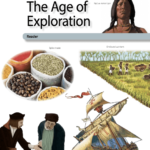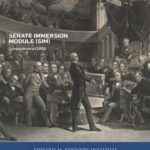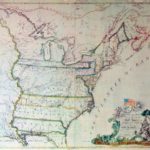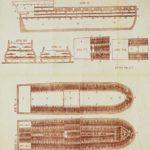This short video examines changing attitudes towards the slave trade in the late 18th century. As early as 1763, there were strong voices in favor of the abolition of international slave trading. At the Constitutional Convention, states from the Deep South refused to support the Constitution without some protection for the slave trade. Professor John Kaminksi describes the convention’s decision to allow congressional action on slavery after 1808 as “the beginning of the end.”
Slavery and The Constitution
Explore the text and history of the Three-Fifths Clause, the Migration and Importation of Slaves or Slave Trade Clause, and the Fugitive Slave Clause.
Constitutional Index – Slave Trade Exception Clause
The Constitutional Index breaks down the U.S. Constitution by Section, Amendment, and Clause and contains broader topics and themes. These are used to cross-reference Library resources in an effort to annotate constitutional history.
The Age of Exploration (CKHG Unit)

This unit introduces students to European exploration and trade from 1400 to the 1600s. Across 12 lessons, students learn about motivations for European exploration and study specific explorers, learning about their encounters with indigenous peoples. Students are introduced to the early slave trade and the beginnings of slavery in the Americas.
Compromise of 1850 (SIM Lesson Plans)

The materials in this curriculum are designed to enhance the Institute’s Senate Immersion Module (SIM) experience, but can also be used separately. The SIM program is an educational, role-playing experience, developed to engage new generations of Americans. The Institute encourages classroom preparation for the SIM, active play at the Institute, and debriefing at the end of the experience.
Constitutional Index – Slave Trade Clause
The Constitutional Index breaks down the U.S. Constitution by Section, Amendment, and Clause and contains broader topics and themes. These are used to cross-reference Library resources in an effort to annotate constitutional history.
States, Slavery, and the Constitution

This short video assesses sectional differences at the Convention about slavery. New England delegates saw slavery as a moral issue beyond the scope of their deliberations; representatives from the Middle States were generally opposed to slavery on moral and economic grounds; and Southerners were insistent on protection for both slavery and the slave trade. Professor John Kaminski analyzes how the conflict was resolved by denying Congress any power to regulate the trade until 1808.
The Constitutional Convention: Slavery and the Constitution
History is the chronicle of choices made by actors/agents/protagonists in specific contexts. This simulation places students at the Constitutional Convention and asks them to engage in the most problematic issue the framers faced: how to deal with slavery. Although most delegates believed slavery was deplorable, it was so deeply entrenched that any attempt to abolish it would likely keep several states from approving the proposed Constitution. By confronting this issue, students will experience for themselves the influence of socioeconomic factors in the political arena, and they will see how political discourse is shaped by arguments based on morality, interest, and pragmatic considerations, often intertwined.
